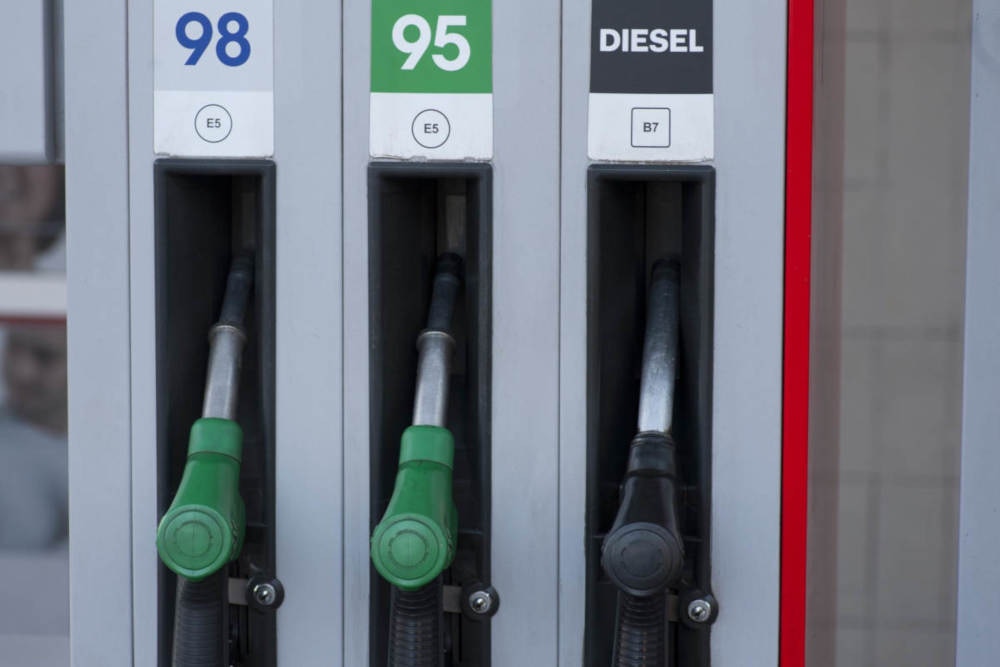Euro 6 compliance and emission standards – the 2026 guide
Last updated: 1st March 2024.
The London Ultra Low Emission Zone and Birmingham Clear Air Zone are in force to combat air pollution and the negative effect it has on human health.
CAZs and LEZs are now in place across the UK in cities such as Bristol, with wider rollout expected. If you’re a driver in the UK, it’s worth making sure you are up to speed with compliance and the standards your vehicle is required to meet in each of these zones in order to avoid hefty fines.
Euro 6 is the standard set across these zones. To check your vehicle is compliant, enter your reg into our ULEZ checker. London’s ULEZ is based on the emissions standards as other CAZ and LEZ across the country, and it’s vital to be prepared for any charges your vehicle might incur when you travel.
Is it time to sell your car?
This guide to the Euro 6 Emission Standards will help you understand the new compliance rules. If you’re considering selling your vehicle, you can get a free valuation and sell your car now.
Euro 6 Emissions Standards and compliance explained:
- What are the Euro 6 standards?
- How will the Euro 6 standards affect me?
- How did the Emission Standards come into being?
- Is my car Euro 6 compliant?
- Euro 6 car check
- Euro 6 diesel cars explained
- Euro 6 conversions

What are the Euro 6 Emission standards?
Petrol and diesel combustion engines produce emissions as part of their normal operation. The Euro 6 standards are a set of emission standards that have been implemented by the EU to try and ensure vehicle manufacturers keep harmful emissions below specific limits.

Only aeroplanes and seagoing ships are exempt from testing. Everything else, from scooters to trucks, has a set of standards to meet before they can be deemed Euro 6 compliant.
The rules cover nitrogen oxide (NOx), carbon monoxide (CO), hydrocarbons (THC and NMHC), and particulate matter (PM).
Limits are different for petrol and diesel engines:
- Euro 6 Diesel Emissions Standards (grams per kilometer): 0.50 CO, 0.080 NOx, 0.005 PM
- Euro 6 Petrol Emissions Standards (grams per kilometer): 1.0 CO, 0.060 NOx, 0.005 PM
Changes were made to the testing procedure following the 2015 diesel emissions scandal. Originally emissions testing was carried out in laboratory conditions (known as WLTP). In 2017, testing methods were updated to create a new Euro 6c designation. The new Real Driving Emissions test (RDE) simulates driving on public roads. This new format wasn’t introduced to give new readings, but instead to highlight any discrepancies between lab figures and real road driving.
From 2017 onwards, most new cards produced are Euro 6d-TEMP compliant. Some manufacturers such as Jaguar and Mercedes already exceed the full Euro 6d regulations.
How will the Euro 6 emission standards affect me?
The Euro 6 emissions standards can affect car owners in the following ways:
1. It can affect how much you pay for car tax. Road tax for cars registered on or after 1st March 2001 is based on CO2 emissions and fuel type. Diesel cars that meet the Real Driving Emissions 2 (RDE2) standards for full Euro 6d compliance pay substantially less in tax for the first registration year. The difference can vary from £15 up to £535, which is a significant amount.
2. It can affect how and where you drive in the UK. UK cities that have CAZs and LEZs include Birmingham, Bristol, Aberdeen, Dundee, Edinburgh, Glasgow and London. The London Ultra Low Emissions Zone (ULEZ) charges any sub-Euro 6 diesel cars and sub-Euro 4 petrol cars £12.50 per day to enter, or move within the zone. You can check your car for ULEZ compliance with our free ULEZ Checker.
3. It can affect how and where you drive in European cities. There are similar schemes in place across most European countries. For example, from July 4th, 2019, cars must be at least Euro 2 to enter Paris between 8am-8pm. The plan is to increase the minimum standard of cars on the road, encouraging drivers to upgrade. All petrol and diesel vans will be banned from Paris in 2030. You can check driving regulations on the EU Urban Access Regulations website.
The above all has knock-on effects on the used car market. If you own an older car and you live in a commuter area, some car buyers could be put off. If you’re buying a vehicle, if you have the option to choose a Euro 6 standard car versus a slightly older model, it will be a safer investment. We’ve written a specific on this if you’re wondering whether to buy or sell a diesel car.

How did the emission standards come into being?
The first rules covering air pollution from motor vehicles were introduced on 20th March, 1970. The Council Directive 70/220/EEC tested for carbon monoxide and hydrocarbons.
The later Euro standards and amendments introduced tougher limits and testing. They’re listed below, along with the date they applied for a vehicle first registration:
- Euro 1: January 1993
- Euro 2: January 1997
- Euro 3: January 2001
- Euro 4: January 2006
- Euro 5: January 2011
- Euro 6: September 2015
- Euro 6d-TEMP: September 2019
- Euro 6d: January 2021
These regulations were put in place to ultimately reduce the risk to human health from pollution. Road transport accounted for 34% of all UK NOx emissions in 2015 and approximately 40,000 people die a year due to respiratory problems associated with air pollution.
Air pollution, naturally, is worse in cities with emissions contributing to smog, acid rain, and other air pollution. Carbon monoxide also creates pollution and is a leading contributor to climate change.
The emissions regulations appear to be working. In 2019, research by The Society of Motor Manufacturers and Traders (SMMT) stated it would take 50 new cars to produce the same amount of pollutant emissions as one vehicle built in 1970.
Euro 7 standards will be released on 1st July 2025, continuing regulatory progress towards lower emissions on our roads.

Is my car Euro 6 compliant?
All new cars registered from September 1st, 2015 are likely be Euro 6 compliant. Those registered from September 2018 will have the Euro Emission Standard of the car in the V5C document.
It’s always worth checking the emissions rating of your specific car. Not only could your car have had a delay between production and registration, but even different trims and spec levels between specific car models can result in varying emissions ratings.
Some car manufacturers have been producing Euro 6-compliant cars since as early as 2012. These tend to be the environmentally-focused ranges, eg. BMWs with the optional ‘BluePerformance’ pack, or ‘BlueHDi’ Citroen and Peugeot cars. Other brands with a wide range of earlier Euro 6 models include Volvo, Mazda, Audi, and Mercedes.
You can check either by contacting your manufacturer or using an online checking tool.
Euro 6 car check?
A number of services exist for checking the emissions rating of your car and therefore its Euro 6 compliance. At the same time, you can also find out tax information and cost.
The easiest way to check your car’s Euro status is on TotalCarCheck. Here, you can enter your car registration and access a huge range of information about your vehicle in just a click of a button.
Once you have entered your reg and pressed the ‘Click to Check’ button, you’ll be taken through to a page of information about your car including the make, model and MOT status. To find your car’s Euro status, you will have to purchase a Gold report. This is a more thorough sweep of your car’s information and is available from £3.99. You can see your Euro status under the ‘Additional information’ section of your full vehicle report.
A variety of other services exist, including this one from UK Government or our ULEZ checker.
Euro 6 diesel cars explained
Many diesel cars use a process called Selective Catalytic Reduction, working with AdBlue, which you need to add to your vehicle, to lower the amount of oxides emitted. It injects a solution into the exhaust gases and is relatively cheap at £1.50 a litre. The AdBlue will need refilling every few thousand miles by a mechanic, but this usually coincides with your annual service.

When it comes to choosing to buy a diesel car, most models registered after September 2015 are compliant.
Euro 6 conversion – how to convert your car to meet the Euro 6 standards
If you own an older car that isn’t Euro 6-compliant, you can make a couple of tweaks to make sure it’s regulation-friendly.
Unfortunately, for petrol cars, it’s not feasible due to the complexity of the technology required to convert them. Liquid Petroleum Gas (LPG) conversions cost around £2,000 with tax offset costs varying from year to year. There are substantial savings on fuel costs, but LPG has specific rules and regulations regarding usage.
There is also the option to convert a car to electric power. However, this can cost from £12,000 to £20,000 and requires a specialist company.
Upgrades to diesel cars are much more accessible. This is because most of the process to reduce harmful gases takes place in the exhaust system.
However, a major diesel retrofit doesn’t make sense for most motorists. It will add weight, require substantial space around the exhaust system, and the cost is likely to outweigh the benefit.
Most conversion services and products are aimed at the commercial market, particularly larger and more expensive vehicles. SCR systems range from around £1,200 to £3,000.
In Germany, the transport ministry has released guides for getting regulatory approval on retrofitted exhaust systems, with Volkswagen and Daimler offering to cover some of the costs. But in the UK, the focus so far has been on upgrading public vehicles including buses and black cabs.

Ultimately if you’re considering converting an older diesel to meet the Euro 6 emission standards, it’s probably worth waiting if possible. As it becomes a more common need, the process should become cheaper and easier. But at the moment, it’s hard to justify on practical and financial grounds.

Selling your car?
Read about everything you need to know about how to sell your car with more guides here. There’s a lot to learn as Clean Air Zones and emissions standards in the UK change in the run-up to 2035.
- Sell my car fast with Motorway
- The 2035 electric vehicle switchover
- Should you sell an electric car?
- Should you sell a diesel car?
- Should you sell a petrol car?
- LPG cars – the ultimate guide
- ULEZ – the ultimate guide
- ULEZ checker
- Birmingham CAZ (Clean Air Zone)
- Electric cars – the ultimate guide
- Should you sell a hybrid car?
- Should you sell an electric car?
- Is my car insured? How to check your car has insurance
- What insurance group is my car? How to check your car’s insurance group
- Who will buy my car online?
- Car depreciation – the ultimate guide
The information provided on this page is for general informational purposes only and should not be considered as professional advice.